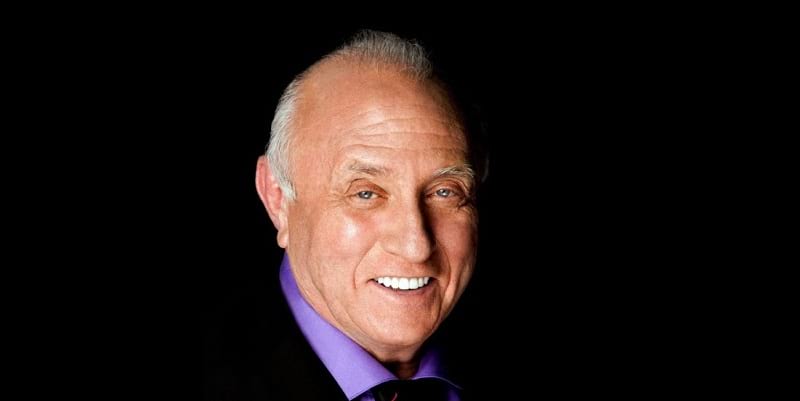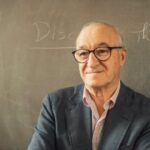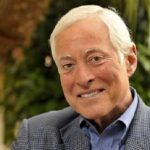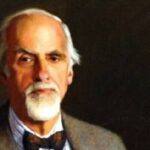Richard Bandler biography and books

Richard Bandler (Richard Wayne Bandler, born 1950) is an American psychologist and self-help consultant. Richard Bandler is best known as the co-founder of Neuro-Linguistic Programming (NLP), a collection of concepts and techniques intended to understand and change patterns of behavior. He is also linked as a developer to systems such as Design Human Engineering (DHE) and Neuro Hypnotic Repatterning (NHR).
Richard Bandler biography
Youth and education
Richard Bandler was born in Teaneck, New Jersey. He had a difficult childhood and attended high school in Sunnyvale, California. Later in life, Richard said that he had been severely abused as a child, to such an extent that almost every bone in his body had been broken at one time or another.
His parents divorced, after which young Richard left for San Francisco with his mother. In California, Richard received a BA in Philosophy and Psychology from the University of California, Santa Cruz in 1973, and an MA in Psychology from Lone Mountain College in San Francisco in 1975.
Professional career
Richard Bandler came in contact with Robert Spitzer, who needed help editing The Gestalt Approach, from 1973. He started working on a manuscript by Gestalt therapist Fritz Perls. Fritz Perls had passed away several years earlier. He also checked transcripts of Eye Witness to Therapy, a 1973 publication.
According to Spitzer, Richard Bandler worked on the manuscript by pretending to be Fritz Perls.
Development of Neuro-Linguistic Programming (NLP)
While still a student at the University of California, Bandler also led a group that focused on Gestalt therapy. He and John Grinder, a university professor, worked using transformational grammar, a subject in linguistics that he specialized in.
They developed a model for therapy and named it Meta-Model. Meta-Model became the basis for their first book, The Structure of Magic, Volume 1, from 1975, which introduced the concept of Neuro Linguistic Programming.
They went on to write The Structure of Magic Volume 2, Patterns of the Hypnotic Techniques of Milton H. Erickson Volume 2 and Changing With Families. The latter Richard wrote together with Virginia Satir.
Richard Bandler also researched Moshe Feldenkrais, an Israeli physicist and founder of the Feldenkrais School of Body Work.
From the 1980s, Richard Bandler devoted himself entirely to developing and presenting NLP and related concepts. He did this without the help of John Grinder. From 1996, the two became embroiled in lawsuits over the ownership rights to NLP.
After a long period, the two agreed on their contributions to the concept, but the two would no longer work together from the 1980s.
Murder charge
In 1986, a former girlfriend of a friend of Bandler’s was gunned down in her Santa Cruz home, with a gun of Richard Bandler. Corine Ann Christensen died of her injuries. Bandler’s friend, James Marino, is also said to be his drug dealer.
Authorities accused Richard Bandler of murdering the woman. Bandler testified that although he had been to Christensen’s house, Marino had shot her. The jury ultimately ruled that Bandler was not guilty.
Contribution to psychology
Neuro-Linguistic Programming (NLP) is a therapeutic self-help technique that focuses on behavior and language.
By introducing people to healthy communication patterns, therapists can show clients how to achieve desired behaviors. While there is no scientific evidence to support NLP‘s effectiveness, many therapists believe the method is beneficial for relieving psychological symptoms, such as depression and cognitive impairment.
Famous quotes by Richard Bandler
- “Brains aren’t designed to get results; they go in directions. If you know how the brain works you can set your own directions. If you don’t, then someone else will.”
- “Disappointment requires adequate planning.”
- “Do you want to know the easiest way to fall in love? Just associate with all your pleasant experiences of someone, and disassociate from all the unpleasant ones.”
- “Don’t re-open old wounds in order to examine their origins. Leave them healed.”
- “Evolution isn’t over. We are having the experience that the universe is having.”
- “Freedom is everything and Love is all the rest.”
- “How much pleasure can you stand?”
- “If at any point you discover yourself hesitating, or being incongruent, or putting off until tomorrow something you could try now, or just needing some new choices, or being bored, glance over your right shoulder and there will be two madmen there, sitting on stools, insulting you.”
- “If it’s worth feeling bad about, it’s worthy of amnesia.”
- “If you can’t enjoy what you have, you can’t enjoy more of it.”
- “If you say to yourself ‘It’s difficult to get up in the morning’, ‘It’s hard to cease smoking’, then you are already using hypnotic suggestions on yourself.”
- “Learning is about looking at things differently, making your life a little better everyday.”
- “Our biggest limit is not in what we want and cannot do; it is in what we have never considered that we can do.”
- “Reframing is also the pivotal element in the creative process: it is the ability to put a commonplace event in a new frame that is useful or enjoyable.”
- “Remember, it’s your own body, your own brain. You’re not a victim of the universe, you are the universe.”
- “Since most problems are created by our imagination and are thus imaginary, all we need are imaginary solutions.”
- “Sometimes people say, ‘One day you are going to look back at this and laugh.’ My question is: “Why wait?”
- “The best thing about the past is that it’s over. The best thing about the future is that it’s yet to come. The best thing about the present is that it’s here now.”
- “The easier you can make it inside your head, the easier it will make things outside your head.”
- “The greatest personal limitation is to be found not in the things you want to do and can’t, but in the things you’ve never considered doing.”
- “The reason people have problems is that they have too much time to think.”
- “There are all kinds of things we can do in this world to make it a better place but we must start with ourselves.”
- “There are no failures – only feedback.”
- “We have been trained to believe that change isn’t easy and requires a lot of effort and a lot of time. I’ve always found this to be simply not true.”
- “Why be your real self when you can be something really worthwhile?”
- “You are born with only two fears: fear of falling and fear of loud noise. All the rest is learned. And it’s a lot of work!”
- “You know what? Certain people think they will feel good if certain things happen. The trick is : you have to feel good for no reason.”
Publicaties and NLP books by Richard Bandle et al.
- 2019. Thinking On Purpose: A 15 Day Plan to a Smarter Life. New Thinking Publications.
- 1996. Persuasion Engineering. Meta Publications.
- 1996. The emotional motor system. Progress in brain research, 107, 3-6.
- 1982. Neuro-linguistic programming™ and the transformation of meaning. Utah: Real People.
- 1981. Trance-formations. Moab, UT: Real People Press.
- 1977. Patterns of the hypnotic techniques of Milton H. Erickson, MD Vol. II. Cupertino, CA: Meta Publications.
- 1976. Changing with families: A book about further education for being human (Vol. 1). Science and behavior Books.
- 1976. The structure of magic: II.
- 1975. The structure of magic (Vol. 1). Palo Alto, CA: Science and Behavior Books.
How to cite this article:
Janse, B. (2022). Richard Bandler. Retrieved [insert date] from Toolshero: https://www.toolshero.com/toolsheroes/richard-bandler/
Original publication date: 09/27/2022 | Last update: 05/20/2023
Add a link to this page on your website:
<a href=”https://www.toolshero.com/toolsheroes/richard-bandler/”>Toolshero: Richard Bandler</a>











